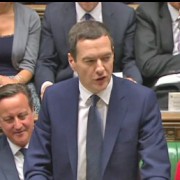Highlights from the Chancellor’s Budget, 18 March 2015
Along with some encouraging news about the UK economy, some interesting new measures were announced in the Chancellor’s Budget yesterday and below we highlight those which we feel will directly impact the majority of UK taxpayers:
- As widely forecast, the tax-free allowance will increase. The amount people can earn before paying tax will rise to £10,800 from 2016-17 and then to £11,000 from 2017-18. At the same points in time, higher earners will also receive a two stage increase to the threshold at which they start to pay a 40% rate of tax, with the threshold increasing to £43,300 by 2017-18.
- The Chancellor also announced a brand new Personal Savings Allowance whereby the first £1,000 of interest (£500 for higher rate taxpayers) will be tax tree. This new allowance will kick in from April 2016 and will take 95% of taxpayers out of savings tax completely. (Fact Sheet available here).
- Another new scheme announced was the introduction of a new ‘Help to Buy ISA’ aimed at prospective first time buyers. This fairly generous scheme means that the Government will chip in up to £50 extra per month (up to a ceiling of £3,000) when an eligible saver saves up to £200 per month towards their first home. (Fact Sheet available here).
- In another ISA reform, savers will now be able to withdraw money from a new Flexible ISA and deposit it back later in the same financial year without losing any of their usual ISA tax benefits. £15,240 will be able to be put into this re-styled savings vehicle. Read more


 Have you ever wondered how much of one’s total income is taken up in tax? And I don’t mean just Income Tax. I mean in ALL taxes paid by ordinary taxpayers throughout the course of a year. Such a figure would need to take into account National Insurance (income tax in all but name, some might say), the insidious Value Added Tax or ‘VAT’ – which on its own is a hefty 20% tax on what is often already taxed money for most ordinary taxpayers, and don’t forget to include Council Tax and finally, of course, Income Tax itself.
Have you ever wondered how much of one’s total income is taken up in tax? And I don’t mean just Income Tax. I mean in ALL taxes paid by ordinary taxpayers throughout the course of a year. Such a figure would need to take into account National Insurance (income tax in all but name, some might say), the insidious Value Added Tax or ‘VAT’ – which on its own is a hefty 20% tax on what is often already taxed money for most ordinary taxpayers, and don’t forget to include Council Tax and finally, of course, Income Tax itself.